Asian Cup spot gives Singapore football a boost, but sustaining momentum the true test: Ex-players, pundits
Past wounds of former players from close misses finally healed on Tuesday night, when Singapore came from behind to beat Hong Kong 2-1 and qualify for the Asian Cup on merit.
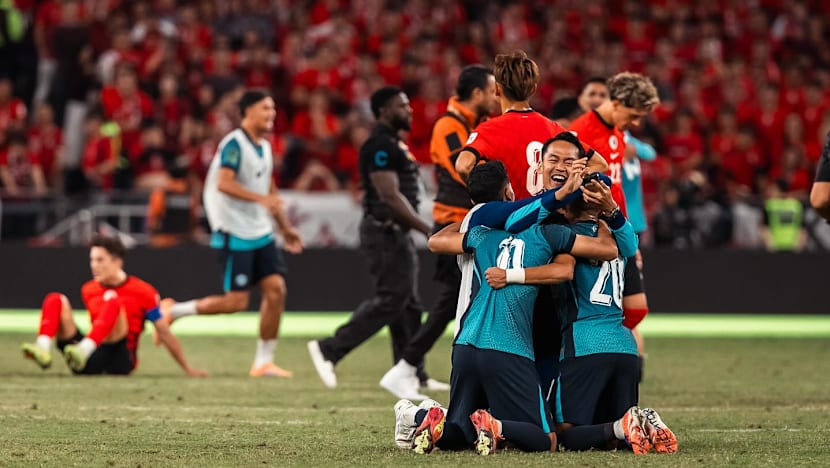
Singapore players celebrate their Asian Cup qualifier victory over Hong Kong at Kai Tak Stadium on Nov 18, 2025. (Photo: Facebook/FAS)

This audio is generated by an AI tool.
SINGAPORE: Perhaps no one knows the pain of coming excruciatingly close to qualifying for the Asian Cup better than former national midfielder Rafi Ali.
The year was 1996 and Singapore was playing Thailand for a place in the tournament. Win, and Singapore would qualify for the first time on merit. But a draw would see Thailand go through instead.
Singapore looked almost certain to qualify after a brace from forward V Selvaraj put the Lions two goals up, recalled Rafi, who played in that match in front of a home crowd at the old National Stadium.
But in a game where nothing is certain, Thailand went on to score two goals to draw the game, leaving the stadium and Rafi stunned.
Despite being part of the squads that won the 1994 Malaysia Cup and the 1998 Tiger Cup, Rafi carried the pain of that near miss for decades.
“It left a huge scar on you … we were leading 2-0 and (felt) we were going to the Asian Cup already,” said the 52-year-old. “There was a sense of unfinished business.”
That wound finally healed on Tuesday night, when Singapore came from behind to beat Hong Kong 2-1 and qualify for the Asian Cup.
“These boys are the biggest now, because they made history,” he said.
“We won the Tiger Cup, we won the Malaysia Cup, whatever. But these boys qualified for the Asian Cup, and it’s the biggest competition we will have played in.”
Former teammate R Sasikumar, who shared that heartbreak in 1996, was equally moved by the current team's feat.
“I didn’t believe that during my lifetime we would be in a major tournament,” said the 50-year-old. “That was until yesterday.”
Across Singapore’s football fraternity, players, pundits and fans hailed the squad’s achievement and urged the ecosystem to build on this momentum.
Football presenter and ex-professional Rhysh Roshan Rai said the buzz among supporters that night would be remembered for generations.
“You’re going to have a new set of fans that will talk about this for years to come, that I was there, I was a part of it, it’s huge,” said the 40-year-old.
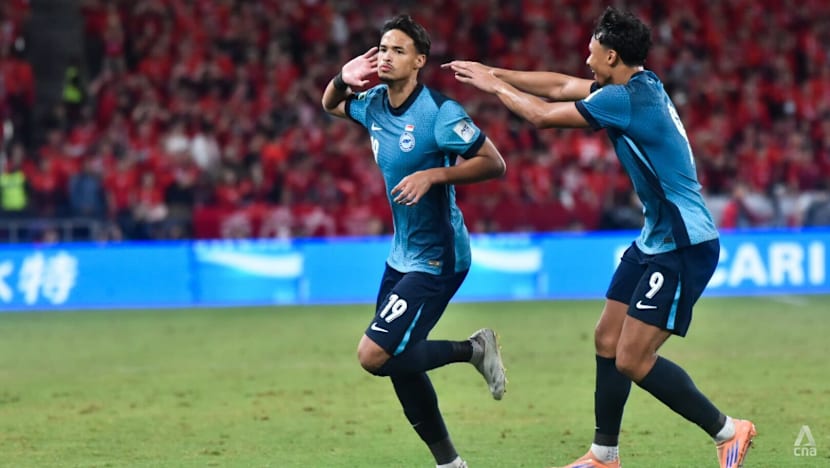
"THESE BOYS ARE NOT READY TO GIVE UP"
Rafi said the defining trait of this team was its “fighting spirit” — something past squads lacked. That spirit was clearest after Hong Kong took a 1–0 lead in the 15th minute.
“I don’t know how to explain this. As a player, you can smell it … that these boys are not ready to give up,” he said.
“You have that feeling that something is going to happen.”
And it did. Shawal Anuar equalised in the 64th minute with a deft lob, before Ilhan Fandi’s strike four minutes later silenced the 48,000-strong home crowd.
The Lions’ direct, purposeful play was refreshing, said Rafi.
“Most of the time, we are guilty of playing negative football, always playing the ball from the back and stuff like that. Yesterday, you can see them going forward, fighting and trying to get goals,” he said.
Rai agreed, noting that the team’s tenacity mirrored their entire qualification campaign.
“They played with a lot of confidence, and they played some good football throughout this campaign, there were moments in matches where they were very competitive, and showed themselves to be a very good side,” he said.
He cited away wins in Bangladesh, India and now Hong Kong as “huge” results. Even when setbacks came — like a last-minute equaliser conceded against India — the team stayed composed.
“There were difficult moments but the team was able to find their way through them," said Rai. “They see playing for the country as a massive honour, and you can see on the pitch that they try and play football,”
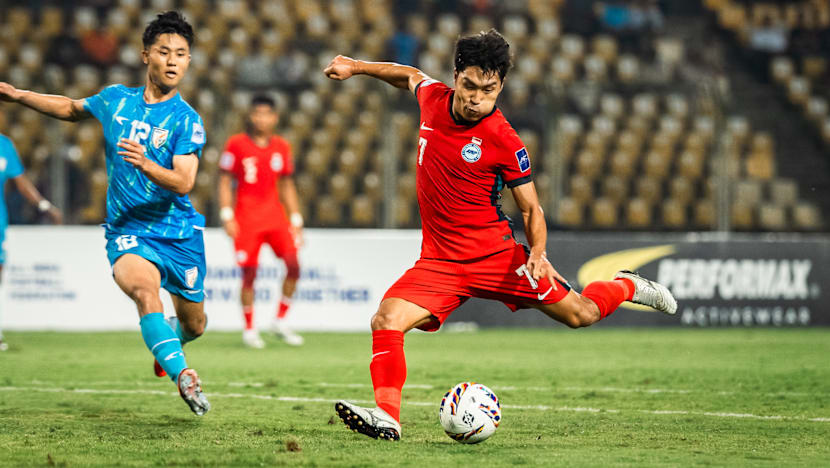
WHAT NEXT FOR THE LIONS?
Interim head coach Gavin Lee and his team should first enjoy what they have achieved, said Rai.
“Now, just enjoy, they deserve to celebrate the moment,” he said.
But the Football Association of Singapore (FAS) now faces a key decision: whether to keep Lee as head coach for the Asian Cup in 2027, or appoint someone new. As Singapore remain unbeaten in the third round of Asian Cup qualification, calls to retain Lee have grown louder.
Rafi believes Lee should stay.
“I’m a firm believer of local coaches taking our national team, because I think only they know how much pride and how much football means to Singaporeans,” he said.
Long-time fan of the national team and football blogger Ko Po Hui also acknowledged the role of former national coach Tsutomu Ogura, who resigned in June.
“Let's not take away the credit from Ogura who laid the foundation and having Lee execute it properly,” said Ko, 49.
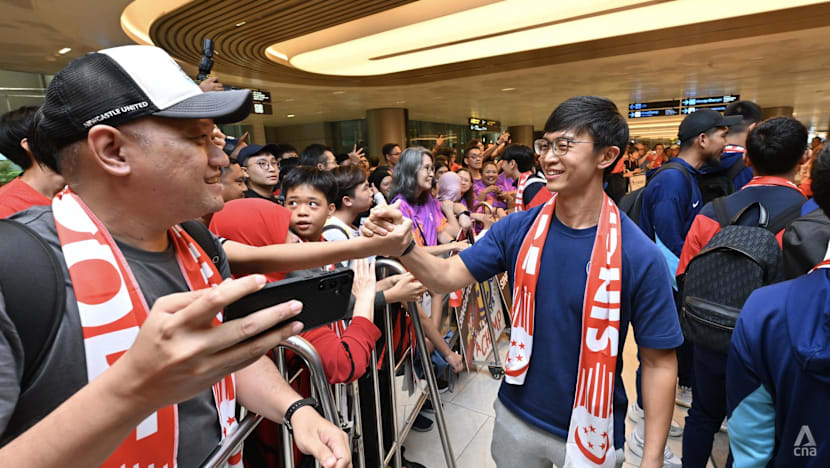
As for how Singapore should begin preparing for 2027, Sasikumar said that it will be “unknown territory” for the entire football fraternity.
“This is where we need to be open-minded in getting help, to see how we can best prepare,” he said.
For one, players and coaches will need to “get out of Singapore”.
“Get as many players out as possible, go to the best countries in the world,” said Sasikumar, who moved to Madrid, Spain with his family in 2021 to run his football business.
“We need to sacrifice, struggle a bit, and then come back and make the national team better.”
He added that playing friendlies with lower-ranked footballing nations may no longer cut it. Singapore will now have to regularly play with more established countries and take the level of their game up a notch.
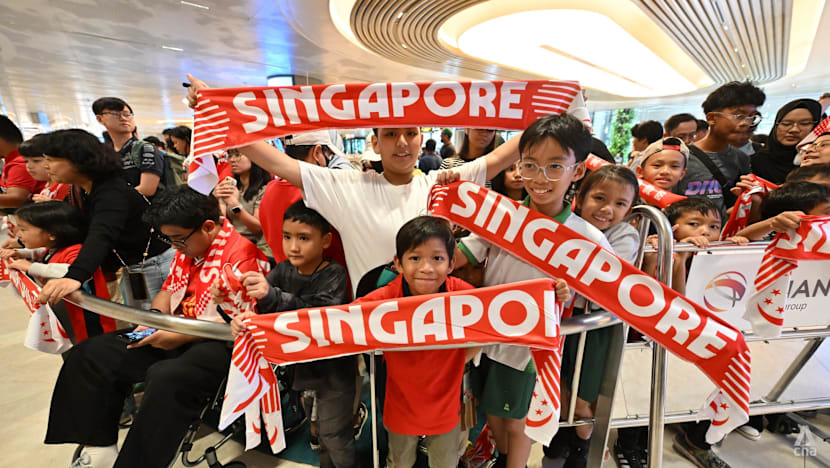
WHAT THIS MEANS FOR SINGAPORE FOOTBALL
The qualification will give local football an immediate lift, though sustaining momentum is the real challenge.
Rai said that in the short term, brands and sponsors will likely pay more attention and put more resources into local football, as the national team’s success could draw “more eyeballs”.
Kadir Yahaya, football director of Unleash the Roar! - a national project aimed at improving Singapore football - said the achievement generates confidence that the country "deserves a seat among Asia's footballing elite".
"Qualification for the Asian Cup will bring some positivity to Singapore football, strengthen belief and help build partnerships with various stakeholders to further improve the sport," said Kadir, a former national footballer himself.
"What the Lions did yesterday will hopefully help set the foundation for a new dawn of Singapore football."
On Wednesday, FAS president Forrest Li announced that the team will receive around S$2 million (US$1.53 million) for their achievement in Hong Kong.
But other than the financial boost from the success, the intangible impact could be bigger.
The feat by the Lions will also inspire children and football fans to look up to a new generation of football heroes and aspire to be like them, said Rafi.
“For those who play football, representing Singapore should be the ultimate goal,” said Rafi, who had looked up to football players in the 70s and 80s on his way to becoming a national player in the 90s.
“We have to really cultivate this attitude in the younger ones.”
But more important is to sustain the momentum for years to come. Sasikumar recalled the same feeling of jubilation and hope when Singapore won the Tiger Cup in 1998, where he scored the match-winner.
“Even with the success of 1998, we should have leapfrogged and should have gone to the next level, but we didn’t,” he said. “I hope we don’t make the same mistake … this is a beautiful opportunity to take Singapore football to the next level.”
He said that the Asian Cup qualification is proof to those who doubted that progress in Singapore football is possible.
He looked back to the goal to get Singapore to the World Cup by 2034, which was announced in 2019.
“Everybody laughed, and everyone said we can’t even get to the Asian Cup, but we have,” he said. “So what's next? Now the narrative has changed.”
Practical as Singaporeans may be, he hopes this achievement will convince more people - from parents to policymakers - that the game is worth believing in.
“This is on another level, higher than what we have ever achieved,” he said.
“Now parents may think that it is worth sending their children to training, and the people in charge will put more resources into the game.”














